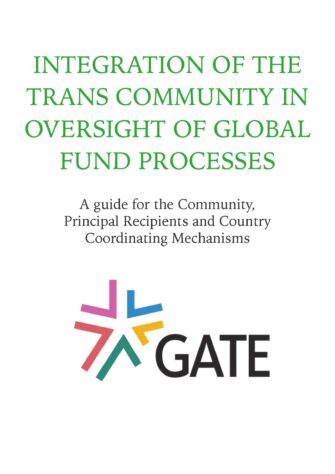This guide seeks to increase awareness and knowledge of the Global Fund process, including the important role that communities should play throughout all its processes, in particular the process of the HIV, TB and Malaria responses. It also seeks to provide guidance to PRs and CCMs. By equipping trans communities with the necessary information and guidance, they are better able to keep national mechanisms accountable to ensure that the populations that need the most support are meaningfully involved in the processes.
The primary target for this guide is the trans community, with a special focus on key populations. “Civil society” is the term used to designate all those stakeholders who are neither government bodies nor private sector enterprises: groups such as nongovernmental organizations, advocacy groups, faith-based organizations, and other populations trans community groups. This guide, along with the checklists included, will serve to inform Principal Recipients, country coordinating mechanisms, stakeholders and other key decision-makers on how to engage trans community partners in all global fund processes throughout the grant cycle but, most importantly, those unique challenges for the more meaningful involvement of the trans community.
The guide comprises the 7 important steps in the Global Fund Process:
- Country Dialogue
- Developing /Reviewing the National Strategic Plan
- Developing the Funding Request
- Incorporation of Feedback from the Technical Review Panel
- Decision from Grant Approval Committee
- Process of Grant Making and
- Board Approval
Each step has a checklist to work with to ensure that the steps are conducted with the inclusion of the trans community, and it compliments it with recommendations to ensure that there is meaningful involvement from the trans community with the support of Principal Recipients and CCMs. By equipping trans communities with the necessary information and guidance, they should be able to keep national mechanisms accountable to ensure that the populations that need the most support are not drastically affected by marginalization and exclusion.






